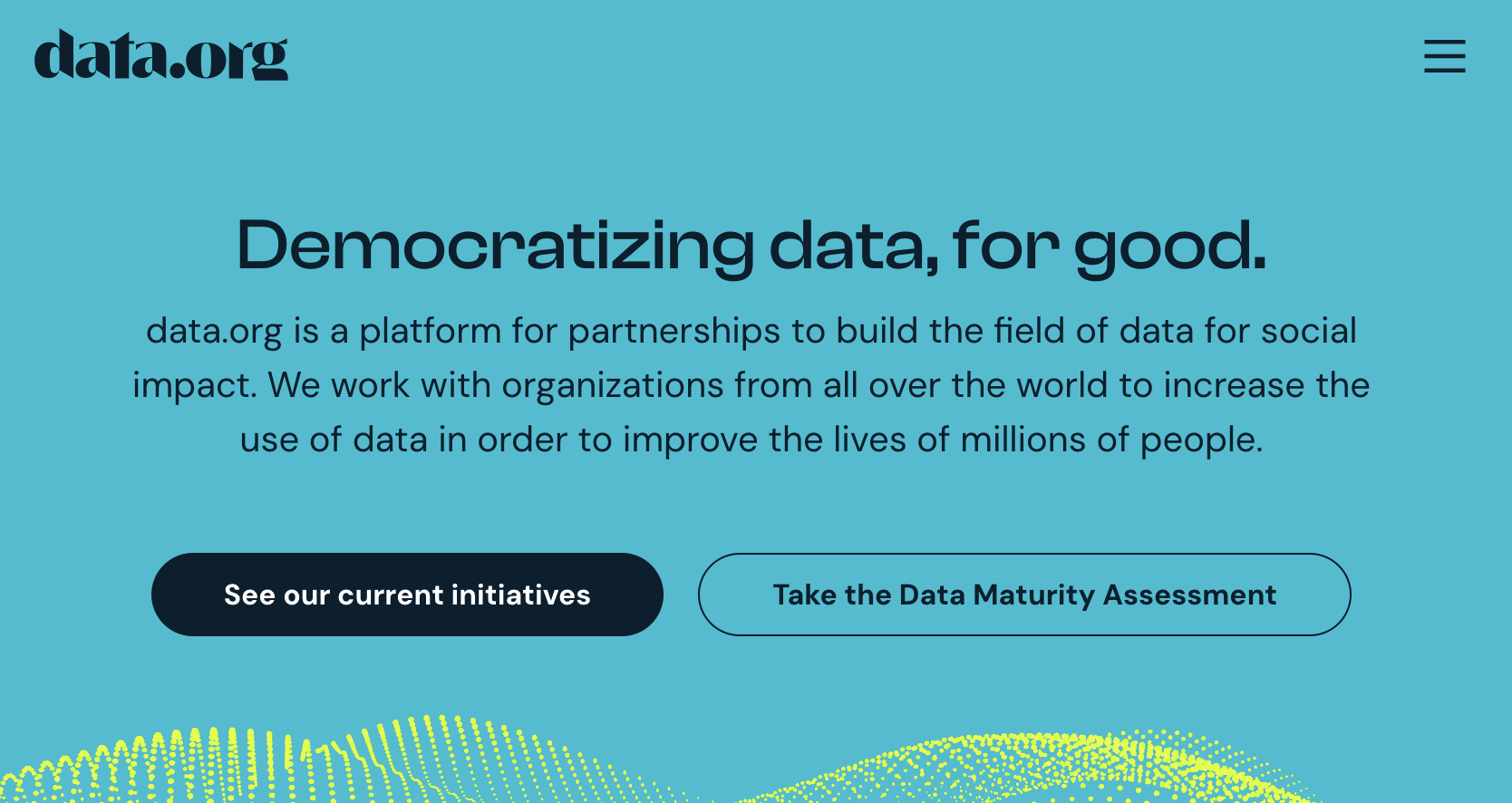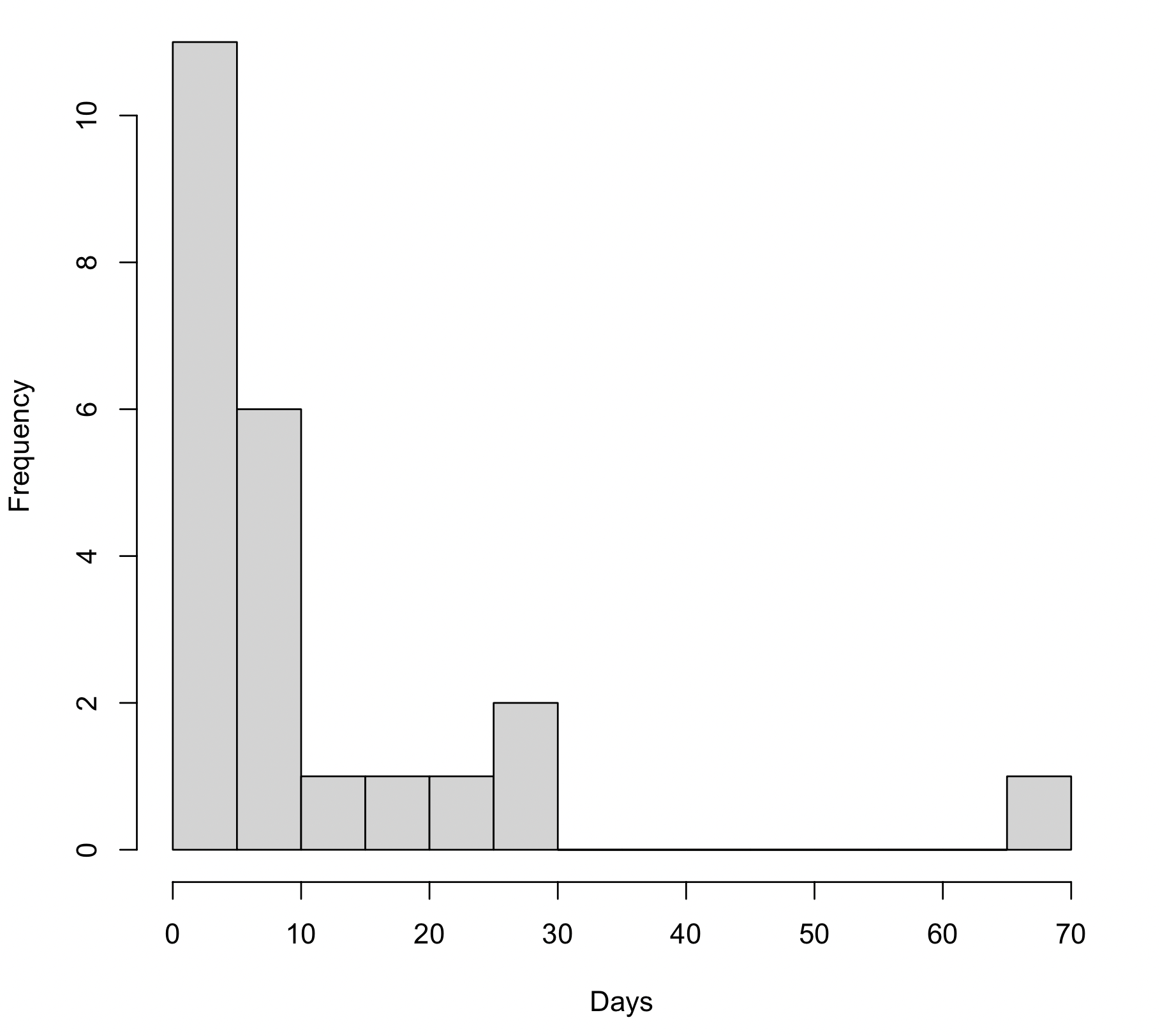Starting at data.org

In October, I shared I started to look for a regular job --- last week, I started as a senior software engineer for data.org until end of 2025.
In this role, I will be contributing to digital public goods using data for social impact. Specifically, I will be dusting off my R skills to maintain and expand packages for pandemic response (in the epiverse ecosystem). As I currently understand it, epiverse is creating agreed upon procedures for epidemiological data preparation to data analysis. This does the prep work for effective and responsive action when new diseases hit. To prevent this is just another standard, epiverse is being coordinated at scale with organizations like the WHO, health ministries, and other health actors in various countries. The idea of combining reproducibility with important and urgent real-world applications, is an exhilarating idea — far out of my comfort zone as well.
I am excited to be working with data.org for many reasons, including the people, the setting (100% remote with people working from across a wide range of time zones from around UTC±6), and the relevance of the content. My work is values driven and this is a value driven organization.
One thing I highlighted previously is that ResearchEquals will stay. This was one of my selection criteria - I need the flexibility to keep running Liberate Science and ResearchEquals alongside this new position. The remote setting allows for that, even if I will no longer be able to spend my complete focus on ResearchEquals. The position is for four days a week — the rest of my energy be focused on building sustainable science.
I may share some ongoing reflections in future blog posts, but the rest of this post is a summary of my job search results.
Job search in numbers
Job applications are such a (nasty) ride! The whole process messed with my psychological state, even though I am confident in what I can bring. As an ex-academic, I am used to getting rejected - papers, conferences — you name it, I have been declined. And I thought that made me resilient all around, but academic rejections and job rejections hit differently after all.
When there's so many positions going around and so many people looking to get hired at any given time, it can feel like a hiring market. One where I needed to accept what I was given. But I kept telling myself that this feeling is a result of the circumstances, not of my capabilities.
I applied to 25 positions in total. For most of them, I got outright rejected (21 positions), others I heard back nothing at all (2 positions). For two positions, I got an interview request. That means that 8% of my current applications resulted in interviews.
On average, it took companies 11.5 days to get back to me about my application. The fastest response I got was in two days, but the slowest was 66 days (for an outright rejection). Most of them got back within a week (16/23 = 60.1%).

Thanks for reading along. Searching for a job is a weird thing — writing about it feels weird too. I am sharing some of my numbers in an attempt to share the oddities of it. I really appreciated Scott Chamberlain's notes on their job search while I was applying for jobs, so maybe this post helps somebody at some point too.

Comments ()